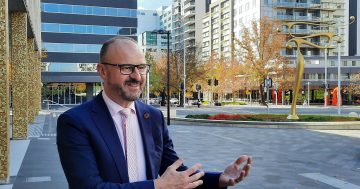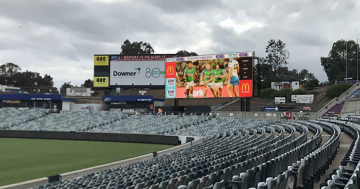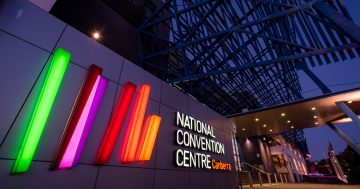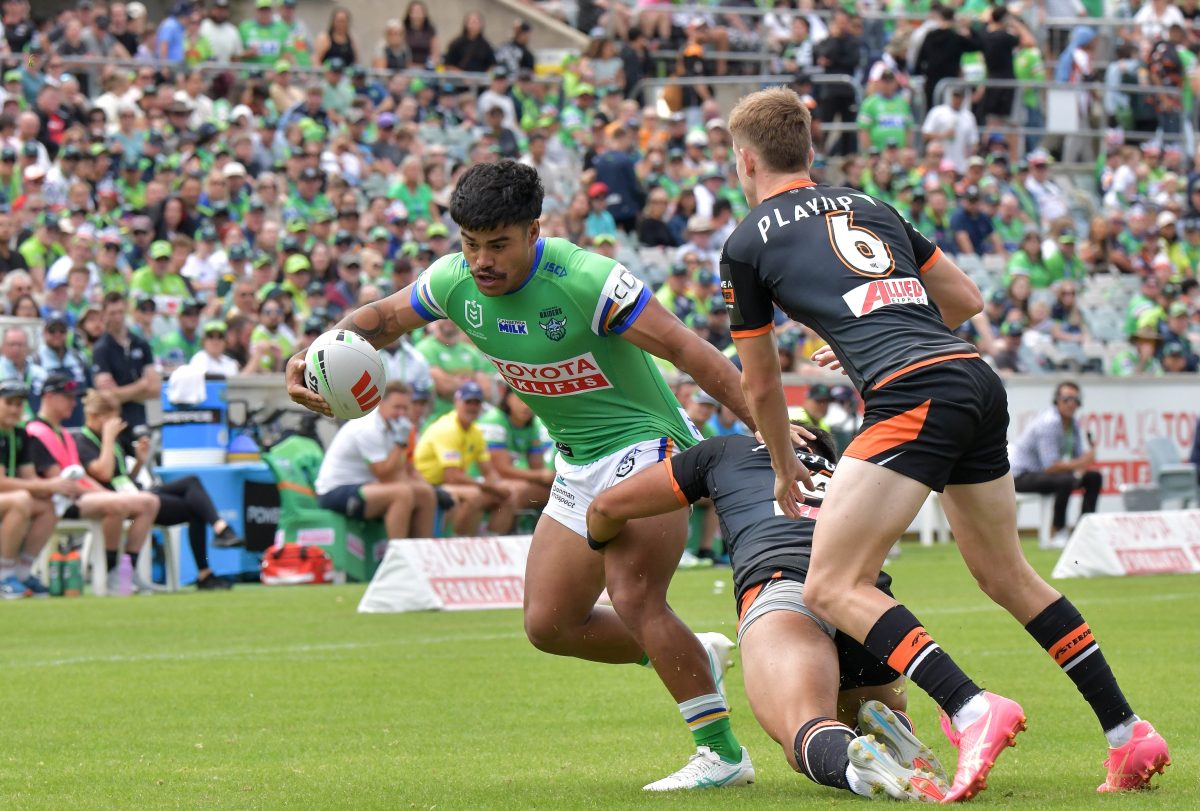
The report accepts any new stadium will be in Bruce. Photo: Jaye Grieshaber.
A parliamentary committee has backed Commonwealth funding for Canberra’s big-ticket sporting facilities and a convention centre, but its report has been criticised for not being specific enough and ignoring submissions about the need for a new stadium to be built in the city.
The Joint Standing Committee on the National Capital and External Territories has handed down its report into the national capital, recommending Commonwealth support for upgrading or developing its sporting, entertainment and arts facilities.
This includes Canberra Stadium, Manuka Oval, the Australian Institute of Support, the National Convention Centre and the Canberra Theatre Centre redevelopment.
It also recommends that the National Capital Authority upgrade Stage 88 in Commonwealth Park to attract performers from outside the Territory and maximise the potential of the venue to host a broader range of events and performances.
The report comes only a week before the federal budget, but the ACT Government has been lobbying the Prime Minister for Commonwealth help to build a new stadium at Bruce and a new convention centre in the city on the current Civic pool site.
While committee member Independent ACT Senator David Pocock signed off on the report, he says the main recommendations were too broad to be practically useful and too influenced by the submissions of one or two stakeholders.
Senator Pocock also criticised the ACT Government for not pushing hard enough to make the case for more Commonwealth funding for Canberra’s facilities.
Senator Pocock said the finding that “any new stadium would now only be built in Bruce” was not supported by the majority of evidence tendered to the committee that favoured a centrally located stadium co-located with a convention centre.
“The Australian Government wants to host the Conference of the Parties [COP climate conferences]. We’ve known since the Commonwealth Heads of Government meeting in 2001 had to be moved from Canberra to Brisbane that we don’t have the capacity in the national capital to do this,” he said.
“But we should and we need to get cracking on delivering that. Canberrans have waited long enough,” Senator Pocock said.
Senator Pocock issued nine recommendations of his own, including co-locating a new stadium and convention centre in Civic and lowering Parkes Way to free up the land required and complete the City to Lake project.
He said a new National Convention Centre should have exhibition space of at least 10,000 square metres as Australia’s meeting place, and the Commonweath should develop a new Civic Pool in Commonwealth Park.
The Commonwealth should also kick in $18.75 million so the Home of Football in Throsby could be completed.
Senator Pocock said the efficiency dividend should be scrapped for the National Cultural Institutions and all parking revenue on national land go to the National Capital Authority to help maintain it and the facilities it is responsible for.
The report calls for the Commonwealth to work with the ACT Government to upgrade Canberra’s stadium infrastructure to the standard required to support national and international sporting events.
This includes improved facilities for athletes and teams, a better spectator experience in a stadium with greater capacity, improved seating and weather protection, accessible parking and transport options, and suitable corporate facilities.
It recommends Manuka Oval be marketed as a boutique sporting facility and that the Commonwealth invests in the AIS to ensure it remains a world-class institution and can fully support Australian athletes in the lead-up to the 2032 Brisbane Olympics and Paralympics.
The committee report’s 21 recommendations also cover promotion and marketing of the national capital, including a single website for the capital; transport, including a hop-on, hop-off shuttle bus and faster Sydney rail service; accessibility; and supporting the institutions, including funding for touring collections.
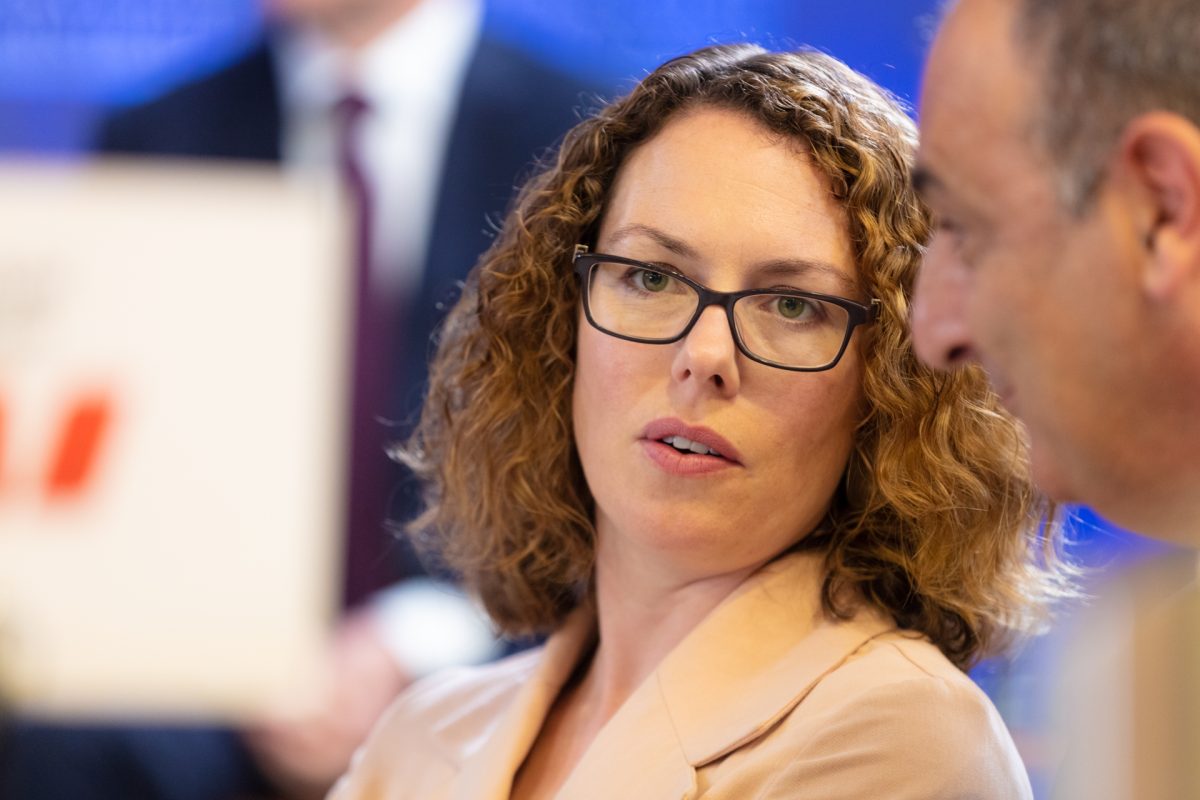
Committee chair Alicia Payne: The report is a blueprint for the national capital. Photo: Michelle Kroll.
Chief Minister Andrew Barr said the recommendations aligned well with the ACT’s infrastructure plan.
“We look forward to working in partnership with the Federal Government on the staged implementation,” he said.
Committee chair and member for Canberra Alicia Payne disagreed with Senator Pocock’s comment that the report was too general and noted that there was no dissenting report.
“Senator Pocock has put in some additional comments and he had raised that he wanted things, some things to be more specific,” she said.
“However, we wanted to reflect all of the evidence.”
Ms Payne said the report represented input from a broad section of the community about what they would like to see the Commonwealth do to strengthen and promote the national capital, which belonged to all Australians.
“I wanted those to be put on the parliamentary record and presented to our committee for us to make recommendations to the government.”
Asked when these recommendations would be acted on, Ms Payne said many of the proposals were not new, and the Albanese Government did believe in the role of a national capital that belonged to all Australians.
“I’m hopeful that this will be a blueprint that I commend to our government, which I am a part of, to consider how we better promote that role,” she said.














